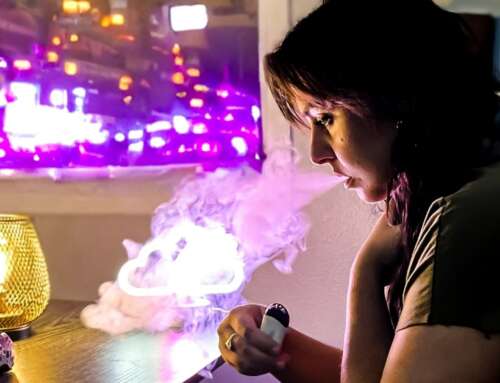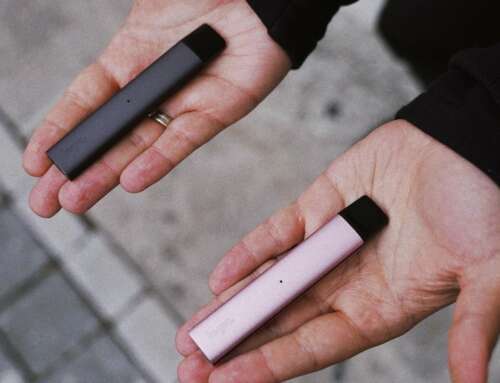
http://www.drugs.health.gov.au
Ecstasy continues to be a popular drug in Australia. Although recent use (use in the past year) has decreased since 2007, those reporting ever having tried the drug has continued to rise to almost 11% of the Australian population aged 14 years and over. The number of school-based young people who reported recent use of the drug had remained fairly steady for some time (around 4% of 12-17 year-olds) but dropped in the most recent survey to 2.7%.
Ecstasy is the street-term for a substance called MDMA (methylenedioxy-methamphetamine). Available in pills, capsules, powder and now crystal form, it is a notoriously impure drug with users never really being sure what they’re actually taking. MDMA is a difficult drug to make and as such other drugs are often substituted during the manufacturing process, some of which can be highly toxic. Recently new processes have been developed and, as a result, we have seen a dramatic increase in MDMA quality across the world.
Unfortunately, young people are provided very little quality information on ecstasy and rely on friends and the Internet when making choices around this drug. What is provided to them through school-based drug education programs or government mass media campaigns is often regarded as unbalanced, ’propoganda’ that focuses on possible, but less likely outcomes such as death. We therefore need to look for other opportunities to provide information that is accurate, credible and useful.
It is unreasonable to expect those who have contact with young people, whether it be a teacher, counsellor, social worker or school nurse, to be ‘experts’ on drugs like ecstasy but here are 5 simple messages that could be conveyed if the opportunity arises:
Ecstasy is illegal and more people are being busted for use than ever before. Young people need to be reminded that if they do get caught with ecstasy and receive a conviction, their life will change. A drug conviction will mean they will not be able to get certain jobs and they will not be able to travel to certain countries, just because you got caught with one pill in your pocket. Drug detection dogs and roadside (or mobile) drug testing are part of their world – they need to know the law – ignorance is no excuse!
MDMA is not a safe drug. Many of the deaths that have recently occurred in Europe have been proven to be MDMA overdoses due, we believe, to the increase in MDMA quality now found in pills, powder and crystal. Deaths in the past have often been due to adulterants (most often PMA, a highly toxic form of amphetamine) and that has led to some believing that if you have MDMA in your pill then it will be safe. It needs to made clear that too much MDMA can result in death.
Even if you know what’s in a pill, it doesn’t mean it’s safe. There’s been lots of discussion around pill testing lately and how that could save people’s lives. The theory is that if you know what you’re taking then that makes it safer. Undoubtedly, knowing what is in the pill is better than not knowing, but young people must realize that they have no way of knowing how those substances contained in the pill or powder will affect them should they choose to use it.
Different drugs affect different people in different ways. This is such a simple message but one that often gets forgotten and it applies to all drugs, including alcohol. Everybody will be affected in a different way when they use a drug and it’s likely that they will be affected in a different way each time they choose to use it. Just because someone you know took a pill and had a ‘great time’ on it does not mean you will have the same experience. People who have died after taking a pill or capsule were not the only ones who used that drug, many others did and they didn’t die. Sometimes a death can be put down to something as simple as ‘bad luck’ – they just had a tragic reaction to that drug on that day!
If something goes wrong, call 000 ASAP. When in doubt, don’t hesitate to call for help. Ecstasy deaths are rare but they do happen and when things go wrong, they go wrong very quickly. You don’t have time to wait and see if they’re going to get better, call for help immediately. Police are not routinely called to illicit drug overdoses, if you call an ambulance, that’s what you get!
If the opportunity arises to correct misinformation, assist a young person to access help or advice on the issue or simply to be there and listen should they want to talk about their experiences or concerns, any quality information on the topic could prove invaluable.
– Paul Dillon – Drug and Alcohol Research and Training Australia (DARTA)
References:
Australian Institute of Health and Welfare. (2014). Highlights from the 2013 National Drug Strategy Household Survey. Canberra: AIHW. (PDF downloadable version)
White, V. & Bariola, E. (2011). Australian secondary school students’ use of tobacco, alcohol, and over-the counter and illicit substances in 2011. Cancer Council Victoria. (PDF downloadable version)
A downloadable PDF version of the PPT presentation, including a list of references, will also be made available once it has been delivered at the Generation Next.
For further information on DARTA and its activities please go to the DARTA website. You can also follow DARTA’s two blogs, ‘Doing Drugs with Paul Dillon’ and ‘The Real Deal on Drugs’.







Leave A Comment